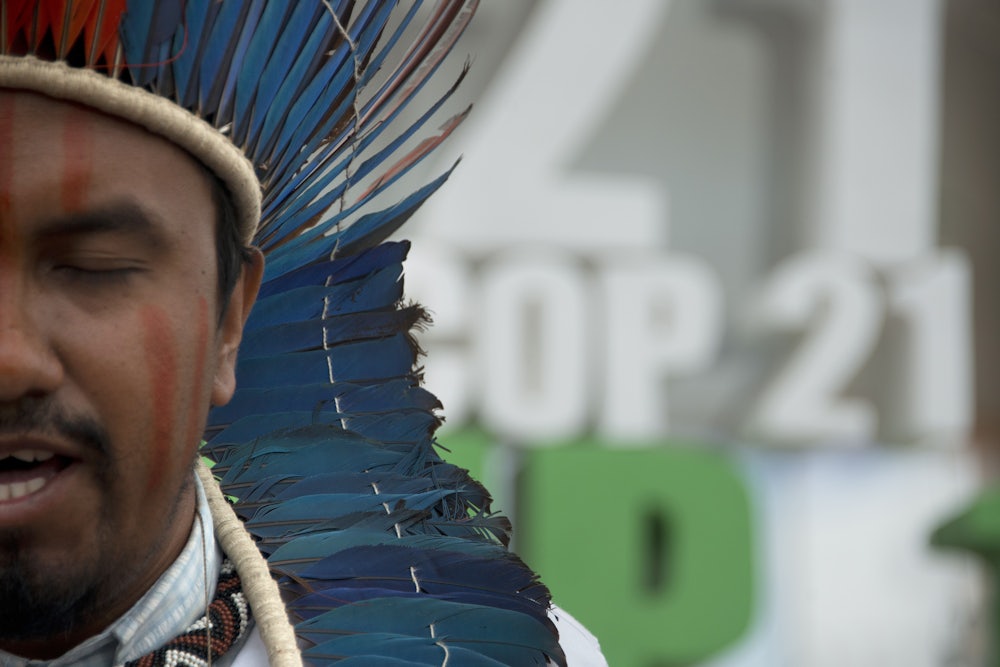The Indigenous Environmental Network used a press briefing to take down UN-REDD—Reducing Emissions from Deforestation and forest Degradation—a program that allows developing countries to profit from maintaining their forests. “REDD is an offset mechanism which uses the forests in the global south as sponges for northern industrialized countries’s pollution,” explained a video that played during the session.
Forests were a focus of today’s global climate talks. According to the United Nations, deforestation and forest degradation account for 20 percent of global greenhouse gas emissions. REDD works as a carbon offset system, whereby emitters can pay forested countries for the carbon absorbed by their trees.
Concern among indigenous groups stems from the land disputes that could result from the potentially lucrative forests found on native lands. In condemning the program, indigenous groups demanded that the agency consult with them on climate projects that concern their communities and ancestral lands. “One of our demands before the COP is that any climate change activities should be subject to human rights, including the rights of indigenous peoples,” said IEN legal counsel Alberto Saldamando.
